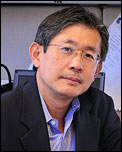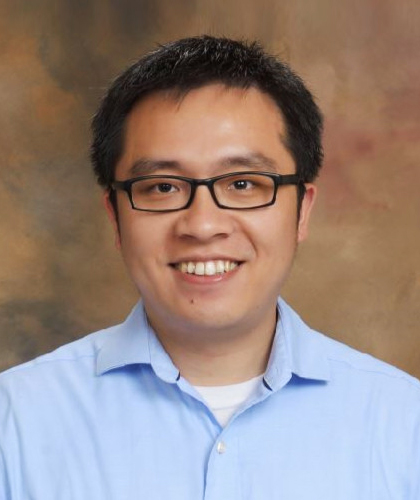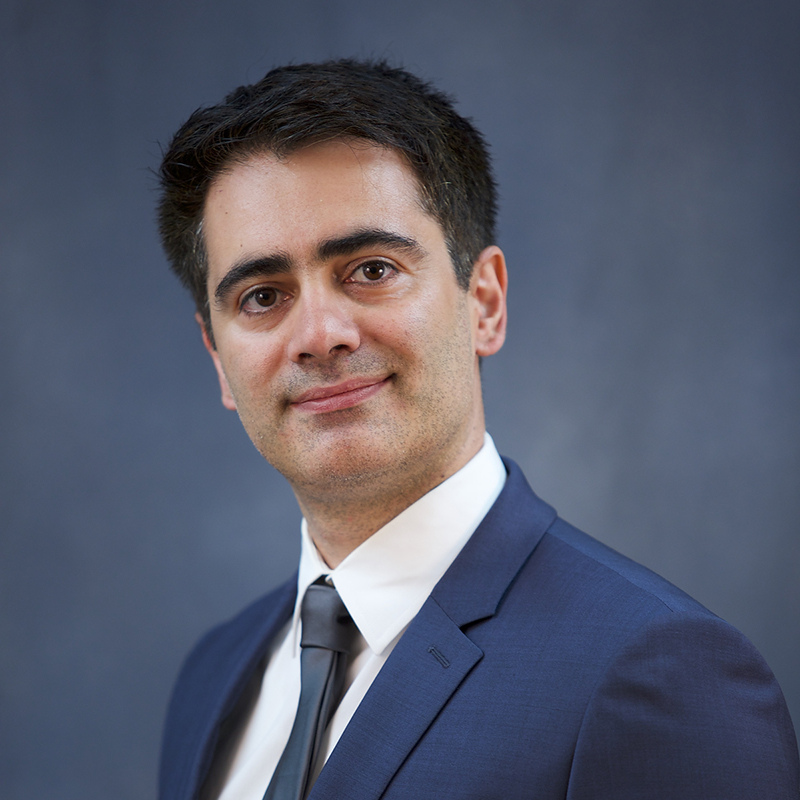News Story
Liu Delivers Keynote at INTERSPEECH 2014

Professor K.J. Ray Liu
Christine Yurie Kim Eminent Professor of Information Technology K.J. Ray Liu delivered a keynote speech at the 15th Annual Conference of the International Speech Communication Association (INTERSPEECH 2014) in Singapore. Held on September 14-18, INTERSPEECH aimed to promote research and education on speech communication science and technology.
Dr. Liu’s talk was titled, “Decision Learning in Data Science: Where John Nash Meets Social Media”, and discussed the growing need to bridge machine/social learning with strategic decision making. These are two traditionally distinct research disciplines. Dr. Liu jointly considered both global phenomenon and local effects to understand/model/analyze better the newly arising issues in the emerging social media.
With the increasing ubiquity and power of mobile devices, as well as the prevalence of social media, more and more activities in our daily life are being recorded, tracked, and shared. This creates the notion of “social media”. Such diverse, abundant and rapidly multiplying elements of real life data, or “big data”, provide tremendous research opportunities in many fields.
To analyze, learn from and understand such vast amounts of user-generated big data, researchers have developed various machine learning algorithms. User-generated big data is the outcome of users’ highly dynamic decisions, actions and socio-economic interactions, but it does not consider users’ local behaviors and interests. Existing learning approaches focus on optimizing a global objective function at the macroeconomic level, while totally ignoring users’ local decisions at the microeconomic level.
Liu presented the notion of “decision learning” that can involve users’ behaviors and interactions by combining learning with strategic decision making. He discussed some examples from social media accompanied by real data to show how decision learning can be used to better analyze users’ optimal decision from a user’ perspective as well as design a mechanism from the system designer’s perspective to achieve a desirable outcome.
Liu, a Distinguished Scholar-Teacher of University of Maryland, leads the Maryland Signals and Information Group conducting research encompassing broad areas of signal processing and communications with recent focus on cooperative communications, cognitive networking, social learning and decision making, and information forensics and security. He has received numerous honors and awards including IEEE Signal Processing Society 2009 Technical Achievement Award and best paper awards from IEEE Signal Processing, Communications, and Vehicular Technology Societies, and EURASIP. A Fellow of the IEEE and AAAS, Liu is recognized by Thomson Reuters as an ISI Highly Cited Researcher. He also served as the President of IEEE Signal Processing Society, the Editor-in-Chief of IEEE Signal Processing Magazine and the founding Editor-in-Chief of EURASIP Journal on Advances in Signal Processing. The University of Maryland has recognized Liu for his teaching in the A. James Clark School of Engineering with the Poole and Kent Senior Faculty Teaching Award, Outstanding Faculty Research Award, and Outstanding Faculty Service Award and his research with the Invention of the Year Award (three times) from Office of Technology Commercialization.
INTERSPEECH strives for a comprehensive conference program that covers a diverse field of speech communication science and technology, and that recognizes the importance of both theoretical and empirical approaches to research problems. In 2014, the International Speech Communication Association (ISCA) marks its 26th year of scientific activities and community services, and its 15th event in its INTERSPEECH series with the theme 'Celebrate the Diversity of Spoken Languages'. INTERSPEECH 2014 gained the sponsorship of more than 19 organizations. For more information on the summit, visit the INTERSPEECH 2014 website.
Published October 10, 2014









